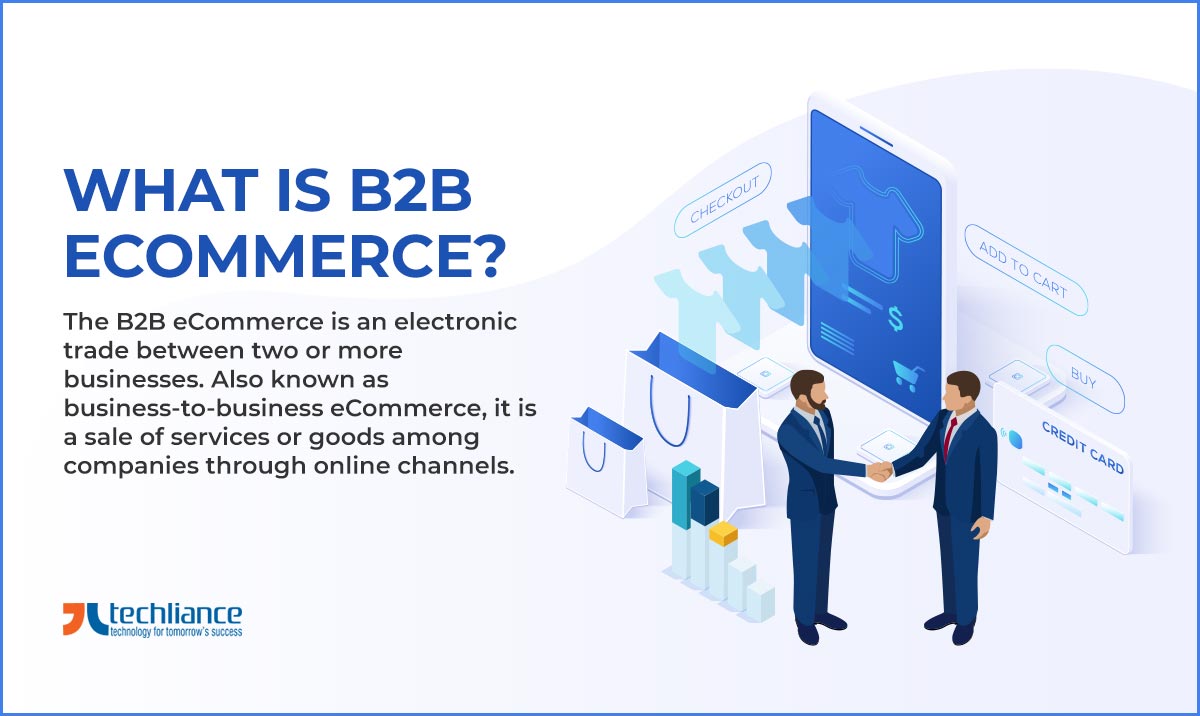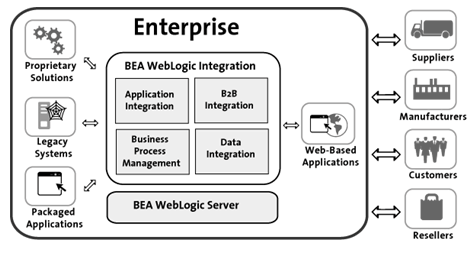e commerce b2b

Introduction to B2B E-commerce
Definition of B2B E-commerce
B2B (business-to-business) e-commerce refers to the buying and selling of products and services between businesses through an online platform. Unlike B2C (business-to-consumer) e-commerce, where businesses sell directly to individual consumers, B2B e-commerce focuses on transactions between businesses at a wholesale or bulk level.
Importance and benefits of B2B E-commerce
B2B e-commerce offers several advantages for businesses:
- Increased efficiency: Online platforms streamline the procurement process, allowing businesses to find and purchase products more quickly and easily. This eliminates the need for time-consuming manual processes.
- Expanded market reach: With B2B e-commerce, businesses can connect with potential buyers and suppliers globally. This opens up new markets and opportunities for growth.
- Improved customer experience: E-commerce platforms provide businesses with the ability to offer personalized and efficient services to their customers. This can result in higher customer satisfaction and loyalty.
Growth and trends in B2B E-commerce
B2B e-commerce has been experiencing significant growth in recent years. Several trends are driving this growth:
- Mobile commerce: With the increasing use of smartphones and tablets, businesses are adopting mobile-friendly platforms to cater to the growing number of customers who prefer to make purchases on their mobile devices.
- Personalization: B2B buyers expect personalized experiences similar to those in B2C e-commerce. Businesses are leveraging data and technology to provide tailored offerings and recommendations to their customers.
- Integration of AI and automation: Artificial intelligence and automation are being used to streamline processes, improve efficiency, and enhance the overall customer experience in B2B e-commerce.
In conclusion, B2B e-commerce offers businesses a range of benefits, including increased efficiency, expanded market reach, and improved customer experience. The industry is growing rapidly, driven by trends such as mobile commerce, personalization, and the integration of AI and automation. Businesses that embrace B2B e-commerce stand to gain a competitive advantage in today’s digital marketplace.

Types of B2B E-commerce Models
Traditional B2B E-commerce
Traditional B2B e-commerce involves businesses buying and selling products or services directly through their own websites. This model allows for direct interaction between buyers and sellers and offers a personalized shopping experience. It is commonly used by manufacturers, wholesalers, and distributors.
E-marketplaces and online platforms
E-marketplaces and online platforms provide a centralized platform where multiple sellers can showcase their products or services to a large number of buyers. These platforms can be industry-specific or general, and they often provide additional features like secure payment processing and logistics support. Companies like Alibaba and Amazon Business are examples of e-marketplaces.
B2B market networks
B2B market networks are online communities that connect buyers and sellers within a specific industry. These networks facilitate communication, collaboration, and transactions between businesses. They often provide additional features like supplier discovery, product information sharing, and RFQ (Request for Quotation) functionalities. Examples of B2B market networks include Thomasnet and Global Sources.
These different B2B e-commerce models offer businesses various options to engage in online trading. The choice of model depends on factors such as industry, target market, and business goals. By leveraging the right B2B e-commerce model, companies can streamline their operations, expand their reach, and establish stronger relationships with business partners.

Key Features and Functionality of B2B E-commerce Platforms
Catalog management and product information
B2B e-commerce platforms offer robust catalog management systems that allow businesses to organize and display their products or services effectively. These platforms provide features such as product categorization, search functionality, and filters to help users find what they’re looking for quickly. With proper product information management, businesses can provide detailed descriptions, specifications, pricing, and availability to their customers.
Order management and processing
Efficient order management is crucial for B2B businesses. E-commerce platforms streamline the order process by facilitating order creation, tracking, and fulfillment. Users can easily manage orders, track inventory, and generate invoices, reducing manual errors and saving time. Automated workflows, notifications, and integrations with shipping providers contribute to smoother order processing, enhancing customer satisfaction and loyalty.
Payment and invoicing systems
B2B e-commerce platforms incorporate secure payment gateways and invoicing systems to simplify financial transactions. These platforms support multiple payment options, including credit cards, online banking, and electronic funds transfer (EFT). They also enable businesses to generate and send professional invoices to customers, ensuring transparent and accurate billing processes.
Customer relationship management (CRM) integration
Integrating a CRM system with a B2B e-commerce platform strengthens customer relationships and improves sales and marketing efforts. CRM integration allows businesses to capture and analyze valuable customer data, including purchase history, preferences, and interactions. With this information, businesses can personalize their marketing campaigns, offer targeted promotions, and provide exceptional customer service.
By utilizing these key features and functionalities, B2B e-commerce platforms empower businesses to manage their catalogs, process orders efficiently, handle payments and invoicing effectively, and enhance customer relationships for sustained growth and success.

Advantages of B2B E-commerce for Businesses
Increased efficiency and cost savings
With B2B e-commerce, businesses can streamline their operations and reduce costs. Online platforms allow for automated processes such as order placements, payments, and inventory management, eliminating the need for manual intervention. This not only saves time but also reduces the risk of errors and delays. Additionally, e-commerce enables businesses to reach a larger customer base without the need for physical locations or extensive sales teams, resulting in significant cost savings.
Global reach and expansion opportunities
One of the biggest advantages of B2B e-commerce is the ability to reach customers worldwide. Online platforms provide businesses with a global marketplace, allowing them to expand their customer base beyond geographical boundaries. This opens up new growth opportunities and increases revenue potential. By leveraging e-commerce, businesses can easily connect with international buyers, explore new markets, and establish strong partnerships across the globe.
Streamlined inventory and supply chain management
B2B e-commerce simplifies inventory and supply chain management. Online platforms enable businesses to track inventory levels in real-time, ensuring optimal stock levels and avoiding product shortages or excesses. Additionally, e-commerce platforms often integrate with suppliers, distributors, and logistics partners, facilitating seamless communication and coordination. This streamlines the entire supply chain process, from order fulfillment to delivery, resulting in improved efficiency and customer satisfaction.
In conclusion, B2B e-commerce offers numerous advantages for businesses, including increased efficiency, cost savings, global reach, and streamlined inventory management. By embracing e-commerce, businesses can stay competitive, expand their market reach, and enhance overall operational effectiveness.

Challenges and Considerations in B2B E-commerce Implementation
Integration with existing systems and processes
Implementing B2B e-commerce comes with the challenge of integrating it seamlessly with existing systems and processes. This includes integrating with inventory management, order fulfillment, customer support, and accounting systems. The goal is to ensure a smooth flow of information and transactions between different departments within the organization. It may require investment in technologies such as APIs or middleware to facilitate this integration.
Security and privacy concerns
In B2B e-commerce, security and privacy are of utmost importance. Businesses need to ensure that their customers’ data, financial information, and transactions are secure. Implementing robust security measures such as encryption, secure payment gateways, and firewalls is essential. Additionally, complying with data protection regulations such as GDPR is crucial to maintaining customer trust and avoiding legal issues.
Building trust and credibility in online transactions
B2B transactions often involve large order volumes and high-value transactions. Building trust and credibility is crucial for successful e-commerce implementation. This can be achieved through customer reviews, testimonials, certifications, and partnerships with reputable organizations. Providing transparent product information, clear return policies, and excellent customer service can also help establish trust and credibility in online transactions.
Overall, implementing B2B e-commerce requires careful consideration of integration with existing systems, addressing security and privacy concerns, and building trust and credibility. By overcoming these challenges, businesses can unlock the full potential of online sales and expand their reach in the digital marketplace.

Best Practices for B2B E-commerce Success
Creating a user-friendly interface and seamless user experience
In the competitive world of B2B e-commerce, creating a user-friendly interface and providing a seamless user experience is crucial. Make sure your website is easy to navigate, with clear and intuitive design elements. Consider implementing features such as advanced search options, personalized product recommendations, and easy checkout processes. Provide detailed product information and images to help customers make informed decisions. By prioritizing user experience, you can enhance customer satisfaction and encourage repeat business.
Offering personalized and targeted marketing strategies
Personalization is key in B2B e-commerce. Tailor your marketing efforts to each customer’s needs and preferences. Use customer segmentation to target specific industries, roles, or buying behaviors. Personalize email campaigns with relevant content and product recommendations. Leverage data analytics to gain insights into customer behavior and preferences. By offering personalized marketing strategies, you can increase engagement, drive conversions, and build strong customer relationships.
Building strong relationships with customers and suppliers
In B2B e-commerce, building strong relationships with both customers and suppliers is essential for long-term success. Communicate regularly with your customers to understand their needs and provide exceptional customer service. Offer support options such as live chat or a dedicated customer service team. Likewise, foster strong relationships with your suppliers to ensure timely and reliable delivery of products. Collaborate with suppliers to develop win-win solutions and explore opportunities for innovation. By building strong relationships, you can establish trust, loyalty, and a competitive advantage in the market.
B2B (business-to-business) e-commerce is the sale of goods or services between businesses through online transactions. B2B e-commerce is becoming increasingly popular, as businesses are realizing the benefits of selling and buying online.
Some of the benefits of B2B e-commerce include:
- Convenience: B2B e-commerce makes it easy for businesses to buy and sell goods and services. Businesses can browse and compare products from different suppliers, and place orders with just a few clicks.
- Efficiency: B2B e-commerce can help businesses to streamline their sales and procurement processes. Businesses can automate tasks such as order processing and inventory management, which can save time and money.
- Reach: B2B e-commerce can help businesses to reach a wider audience of potential customers. Businesses can sell their products and services to customers all over the world, and they can also reach new customers through online marketplaces.
There are a number of different types of B2B e-commerce platforms. Some platforms are designed for specific industries, while others are more general-purpose. Some platforms are hosted by the vendor, while others are cloud-based.
When choosing a B2B e-commerce platform, businesses should consider their specific needs and requirements. Businesses should also consider the features and functionality of the platform, as well as the cost.
Here are some examples of B2B e-commerce platforms:
- Alibaba
- Amazon Business
- eBay Business
- Global Sources
- ThomasNet
If you are a business owner, you should consider using B2B e-commerce to sell or buy goods and services. B2B e-commerce can help you to save time and money, and it can help you to reach a wider audience of potential customers.
